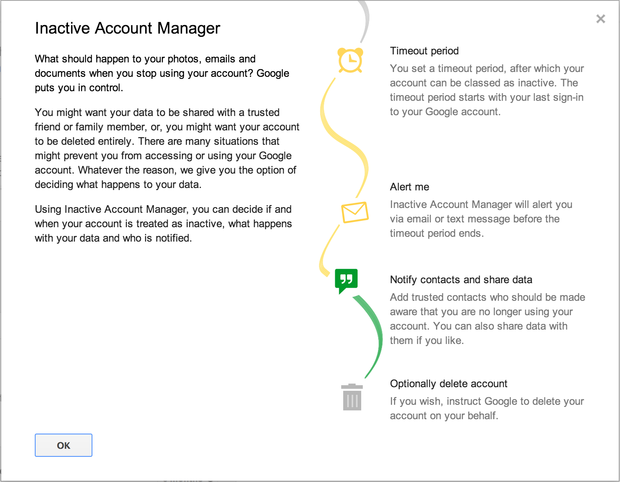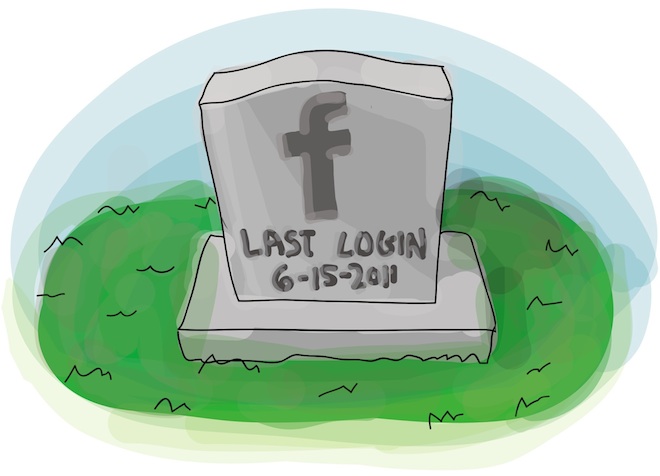Google recently announced a new tool to help users manage and plan for their digital afterlife. The tool is called the “Inactive Account Manager” and allows users to delete or appropriate trusted contacts to their Google properties once they have passed.
“Whatever the reason, we give you the option of deciding what happens to your data,” Google stated in their blog.
Users can choose to have their data deleted three, six, nine or twelve months after it becomes inactive. Idleness can also prompt the system to take effect. Google won’t automatically delete the information after the allotted time. Rather, the service’s “timeout” period is wired to warn users through a secondary email address or a provided phone number before taking any permanent action.
Besides the most popular Google features, Gmail and Google+, users can choose to have their YouTube account, Blogger, Google Voice and Picasa Web Albums passed on to determined beneficiaries as well.

Providing a way to address digital properties when someone passes, similar to a will, is becoming necessary as people trust more of their personal data to online services and communities. Social networks, cloud data storage services, online photo albums and other digital platforms are housing more personal information than ever before. The number one social network Facebook already allows members to have their accounts “memorialized” or deleted after they pass on.

Twitter has similar option where users can contact administrators to either completely delete or obtain a permanent backup of a deceased user’s account information, including tweets.
These moves could be in response to the fact that written laws in the United States and other countries don’t seem to be fully equipped for how to deal with digital data after death. The fate of digital property rights after someone passes is vague, with complications and legal controversies over loved ones’ accounts more prevalent over the past few years. One recent highly publicized instance {link no longer active} is the story of a young Canadian girl who committed suicide because of relentless bullying from peers. After she died, the taunting messages posted to her account continued to live on her Facebook page.
Google is urging a little planning now to help prevent having personal and vulnerable information out there after someone passes.
“We hope that this new feature will enable you to plan your digital afterlife — in a way that protects your privacy and security — and make life easier for your loved ones after you’re gone.” Google stated.
Learn how to set up the Inactive Account Manager here.
Source: Washington Post

